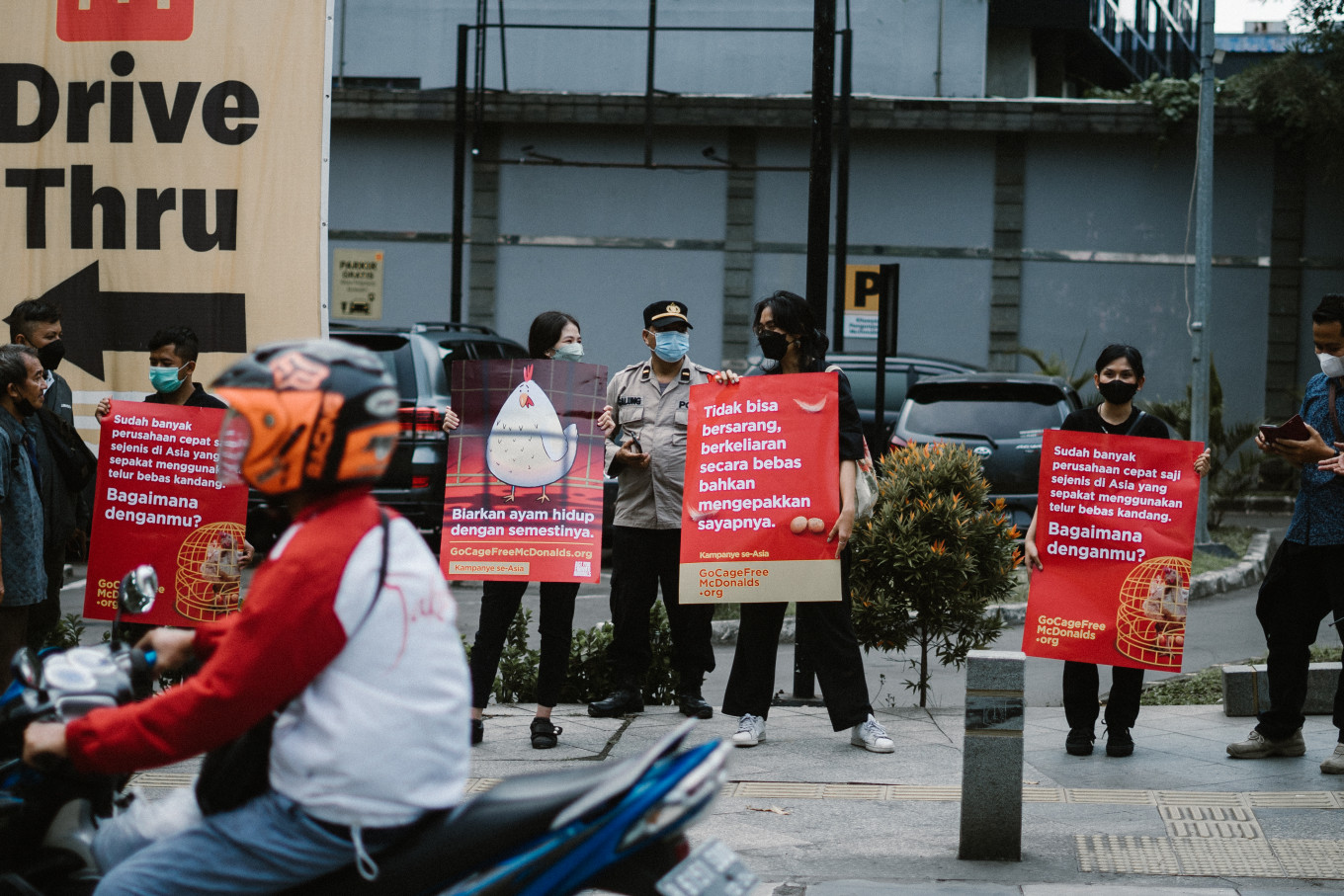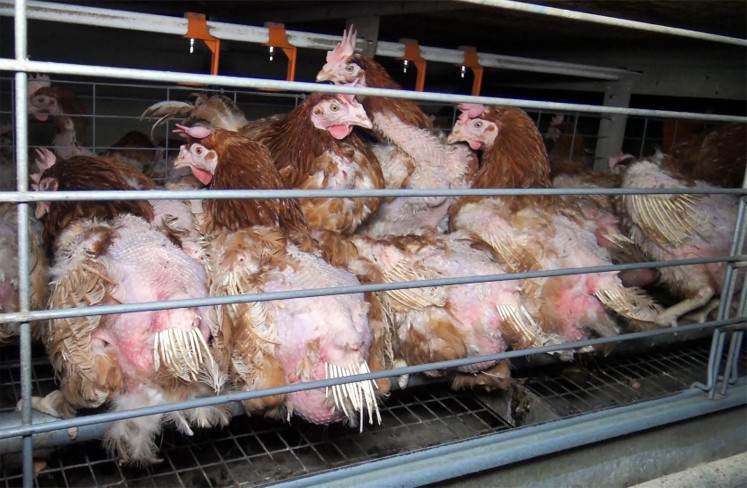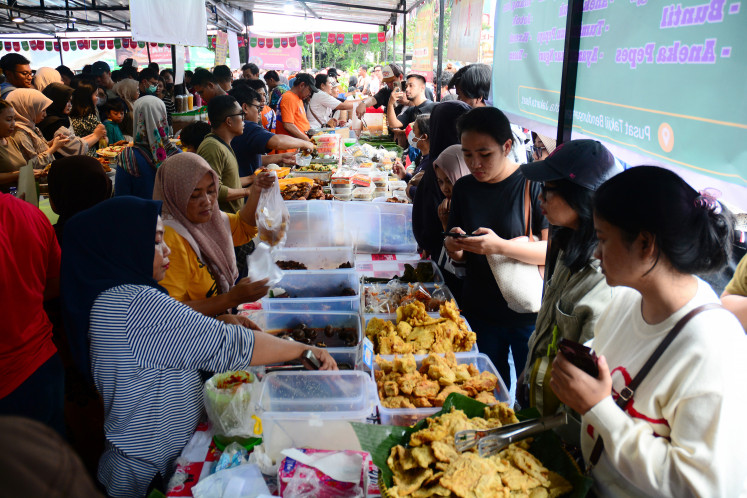Popular Reads
Top Results
Can't find what you're looking for?
View all search resultsPopular Reads
Top Results
Can't find what you're looking for?
View all search resultsActivists urge McDonald’s to stop sourcing eggs from caged hens
Animal rights activists stages protests in front of McDonald's chains in Jakarta, Yogyakarta and Bali on Thursday.
Change text size
Gift Premium Articles
to Anyone
A
nimal rights activists have called on fast-food giant McDonald's to stop using eggs sourced from controversial battery cage systems, in all of their restaurants in Asia.
Act for Farmed Animals (AFFA), a coalition consisting of Animal Friends Jogja and Sinergia Animal, held rallies in front of McDonald's outlets in Jakarta, Yogyakarta and Bali on Thursday.
The coordinated march was also carried out in more than 10 cities in Asia, including Bangkok, Kuala Lumpur, Hong Kong, Manila, Ho Chi Minh City, Hanoi, Taipei and Seoul. The rally will continue over the next few weeks at key McDonald's stores.
“We coordinated this regional [rally] because we were disappointed by McDonald's neglect of raising animal welfare standards in its supply chain in Asia, unlike other large fast-food companies that have abandoned battery cages globally,” said Animal Friends Jogja program manager Angelina Pane.
Read also: McDonald's french fries shortage spreads to Indonesia
Currently, McDonald's has committed to stop sourcing eggs from battery cages in the United States, Canada, Australia, New Zealand and Latin America, but not in Asia.
This image made on April 2017 and obtained on April 30, 2017 on the website of the L214 animal welfare association shows featherless hens in their cage at a battery farm in Chauche, France. (AFP PHOTO / L214 - ÉTHIQUE & ANIMAUX/.)Meanwhile, other fast-food companies, including Burger King, KFC and Pizza Hut, have announced a comprehensive commitment to ending the use of eggs from battery cages in the region, Angelina noted.
“Tens of thousands of consumers have joined calls for McDonald's to adopt a battery cage-free policy in Asia. It's time for McDonald's to act,” said Angelina, claiming that eggs from battery cage systems are at a greater risk of salmonella contamination.
Read also: McDonald's profits jump on higher price as more markets reopen
“There are at least 10,000 outlets located in Asia. McDonald's failure to implement a battery-free standard has a number of implications for animals, including human health,” she said.
Salmonella is a bacterium causing 155,000 deaths worldwide annually, the World Health Organization (WHO) estimates.
McDonald’s, which uses more than 2 billion eggs per year in the US alone, or almost 5 percent of all eggs produced in the country, got 33 percent of its egg supply from cage-free sources as of 2019.












